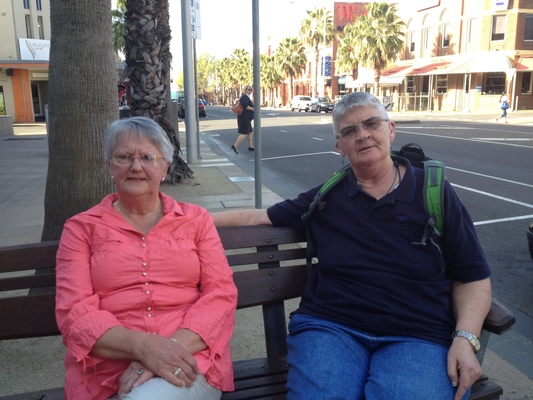By JOHN VAN KLAVEREN
SHIRLEY Fifer woke up deaf one morning.
The 68-year-old keen golfer from Clifton Springs had lost her hearing overnight.
“When I went to bed I could hear and when I woke up I couldn’t,” she said.
“I did have some hearing problems in the time before that but nothing that made me think I would go deaf.”
Shirley discovered she lost her hearing through Meniere’s disease, a condition that results in excess fluid in the inner-ear.
Belmont’s Patricia Mitchell lost her hearing aged just 18 months when she contracted measles.
Her hearing loss became gradually worse until she was finally diagnosed at age seven.
“There’s still a lot of ignorance about hearing loss,” Pat said.
“It’s like deaf people are invisible because it’s not obvious and can be associated with being dumb.”
Pat immersed herself in books and reading as a child to escape the hearing world, leading to a sense of isolation.
But the world for both women changed about 18 months ago when they each received a Cochlear implant.
The technology opened up the world of sound for both, although learning to hear again took time.
“The brain doesn’t know what the new sounds are, so you need to retrain the brain,” Pat explained.
“You’re introducing a new source of sounds to the brain through the implant rather than through the ear. The first sound I identified after getting the implant was a clock ticking.”
Shirley described the implant procedure as “quite simple”.
“It’s just an overnight stay in hospital. The Royal Eye and Ear Hospital staff are angels on Earth.”
About 29,000 Victorians aged over 45 are at risk of severe to profound hearing loss but new research has found that many Victorians still fail to have their hearing checked.
Professor Graeme Clark, inventor and pioneer of the world’s first multi-channel cochlear implant nearly 40 years ago, said hearing loss affected people of all ages.
“There’s nothing to be ashamed of,” he said.
“We need to dispel the misconceptions and negative stereotypes around hearing loss. Now is a good time for people to think about their options and speak with a hearing care professional about their concerns.”









